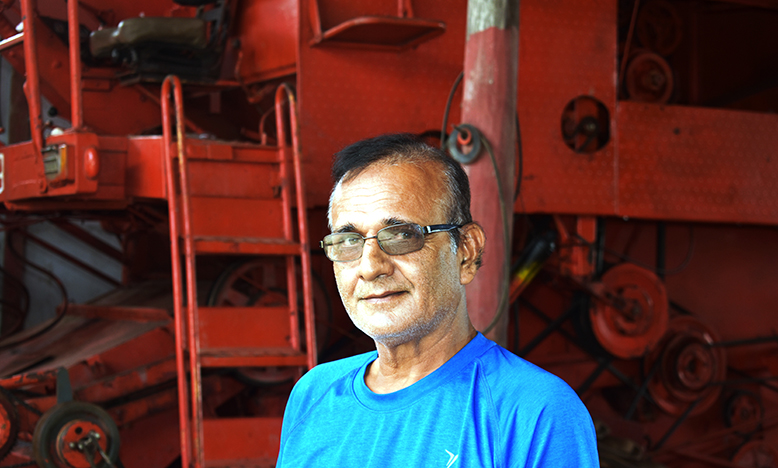THE thought of having to relocate to a thickly populated village is very daunting for Jenny Balkaran of Wash Clothes Village, Branch Road, Mahaicony, who has lived her entire life in the community.
The 55-year-old told the Pepperpot Magazine relocation was not for her because she was home-grown and Wash Clothes was the only place she had lived, and moving was not an option despite the constant flooding.
“Every time the floods come, we have to count our loss and move on, but it is often difficult because we are grasping at straws. We invested heavily on farming, livestock and cattle to make a living and with that gone it is not easy to recover in the near future,” she said.
Balkaran explained that they had to renovate after the floods and they also did some construction to build up the concrete surrounding their house to prevent flooding inside the property.

“This is the life we face, plenty flooding and it is creating hardship on us but we cannot give up, where we will go, this is where we belong,” she said.
Balkaran stated that all the crops were destroyed on the farm and only a few sheep survived.
She is, however, grateful for the one-off cash grant payment of $25,000 from the current admiration for riverine and hinterland.
The farmer disclosed that life is quiet in Wash Clothes, and she is contented with the modest way of life because they have a lot of space and they enjoy a clean atmosphere.
Balkaran said her husband does whatever he can for work. At times he is a labourer working with rice farmers to throw paddy in the fields. He also does carpentry and would go and catch fish too.
Satya Gildhari
Meanwhile, Satya Gildhari is also a resident of Wash Clothes Village who lives in an extended family setting.
Living in the countryside is very tranquil, but there are no permanent jobs, so he is a part-time taxi driver, a farmer, a labourer and a fisherman.
Gildhari explained that when it is needed, he would often work with people in the community on their farms because he doesn’t have a regular 08:00hrs to 16:00hrs job.

Like most locals, they have to do many jobs to make ends meet financially.
Gildhari reported that his ailing 68-year-old mother resides in the same house, and together he and his siblings assist in taking care of her.
His father, a farmer, passed away 28 years ago, and his mother had a budding small business before she took ill.
Bhagmattie Gildhari used to buy and sell ground provisions, vegetables, clothing, footwear and other items and sold at markets.
She also had a small shop at her residence.
Gildhari added that his mother used to go to the various markets to sell and would use the boat and engine they had to go into the creek and sell.

She had to quit selling 11 years ago due to ill health, and the shop closed its door four years ago, since he could no longer manage it.
Gildhari told the Pepperpot Magazine that life in Wash Clothes is often fair, but it entailed hard work and doing many jobs.
He stated that the place was very peaceful and it comprised families, mostly those related by blood, and it is a village where the people are very familiar with each other.
Wash Clothes Village is a place strangers do not exist, and it is a close-knit community of hardworking people, mostly farmers.
Bachan Dyal, the rice farmer
Bachan Dyal is a medium to large-scale rice farmer of Wash Clothes Village, Branch Road, Mahaicony, who has been a local of the community for the past 40 years.
He is originally from Leguan Island, Essequibo River but left his home village to go to school, and soon, he entered the world of work.
It was not long after he got married and relocated to Wash Clothes.

The father of two stated that his children assisted him on the farms, and life for him was comfortable except for the flooding which is causing difficulties in production.
He would often employ about eight villagers when he has a harvest of rice crop.
Dyal believes that upgrading the current drainage system is crucial to minimise the effects of flooding in the village due to heavy rainfall.




.png)









